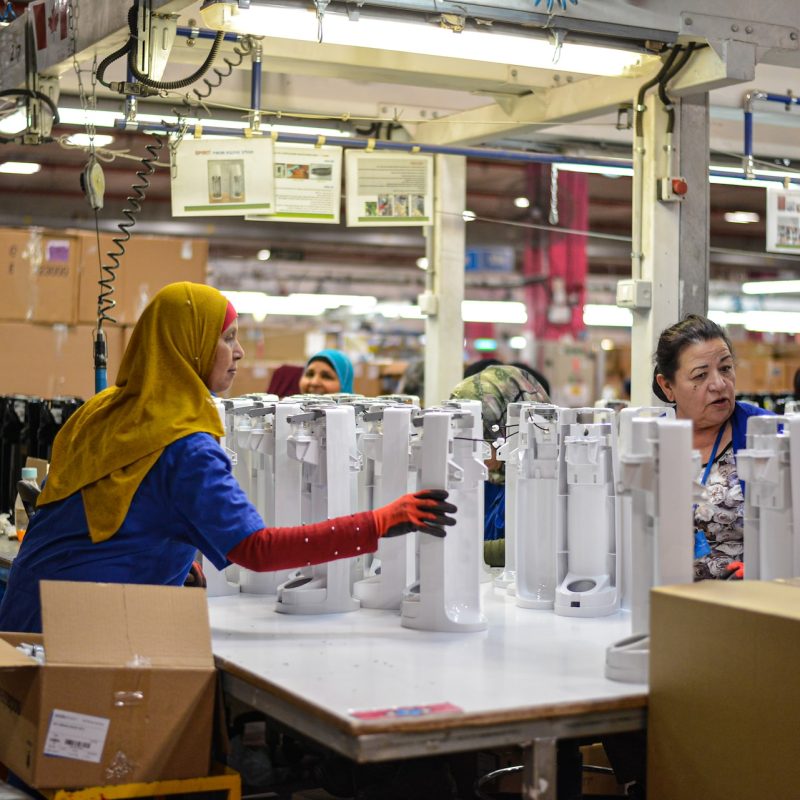
New Publication: Worker-Driven Social Responsibility – Exploring a New Model for Tackling Labour Abuse in Supply Chains
Today, FLEX publishes a new report, Worker-Driven Social Responsibility: Exploring a New Model for Tackling Labour Abuse in Supply Chains. The report explores ‘worker-driven social responsibility’ (WSR) as a tool for ensuring decent work for outsourced, subcontracted and offshored workers and questions how it might work in different contexts. We are co-hosting a webinar on WSR and this research on 25 March at 2-4pm GMT / 10am-12pm EST with the WSR Network. Please sign up on Eventbrite here.
WSR: An Exciting New Model
WSR is an exciting new model for tackling labour abuse in supply chains that has demonstrably improved working conditions in a range of contexts, including tomato fields in Florida, dairy farms in New Jersey, and garment factories in Bangladesh and Lesotho. It acts as an antidote to ‘corporate social responsibility’ models that seek to improve workers’ conditions from the top-down, by instead taking the lead from workers and their representative organisations in setting the terms and conditions of employment.
This may sound a lot like collective bargaining – the negotiation of wages and other conditions of employment by an organised group of workers – but what makes WSR different is that it targets companies at the top of supply chains, not direct employers. Instead of negotiating solely with suppliers who are only able to pay workers within the margins of what they are themselves paid, workers and their representatives negotiate directly with the party with the most power in the supply chain, i.e. buyers.
Many UK trade unions are already successfully targeting lead companies in recognition of the power they have over wages and conditions of workers in their supply chains, but WSR provides a concrete model with a number of key mechanisms for doing so. These include:
1) Workplace standards developed by experts, usually workers themselves;
2) A legally binding contract between workers’ organisations and lead companies that obliges lead companies to a) support suppliers to comply with the agreed standards and b) stop sourcing from non-compliant suppliers;
3) Peer to peer education for workers on their rights under the WSR programme;
4) A complaints mechanism for workers to report labour rights violations without fear of retaliation; and
5) An independent monitoring body to carry out regular audits of suppliers and respond to workers’ complaints.
WSR in the UK Context
WSR was created in and has mainly been applied to contexts that are highly hostile towards trade unions and other workers’ organisations, and where state labour market enforcement has been significantly failing certain groups of workers, most notably women and migrants. While the UK has implemented a number of policies that have made it harder for workers to organise and bargain collectively, and though state labour market enforcement is under-resourced and works better for some groups of workers than others, the UK nonetheless remains a different context to those in which WSR developed.
In the light of this, FLEX’s new report explores what the contribution of WSR might be in a society and economy like the UK where trade unions and state labour market enforcement have important roles to play, but where neither appear to have kept pace with shifts in corporate practices. It finds that WSR is a useful and important tool in contexts or sectors that are hostile to unionisation and that it could function as a pathway to long-term, sustainable worker organising, as long as it is deployed carefully. The report also finds several useful lessons for labour market enforcement from the model. Overall, WSR shows us important tactics and methods for ensuring our workplaces, both at home and abroad, are healthy and focused on protecting rights and conditions for all.
Read the full report here and sign up to the Eventbrite webinar here.
